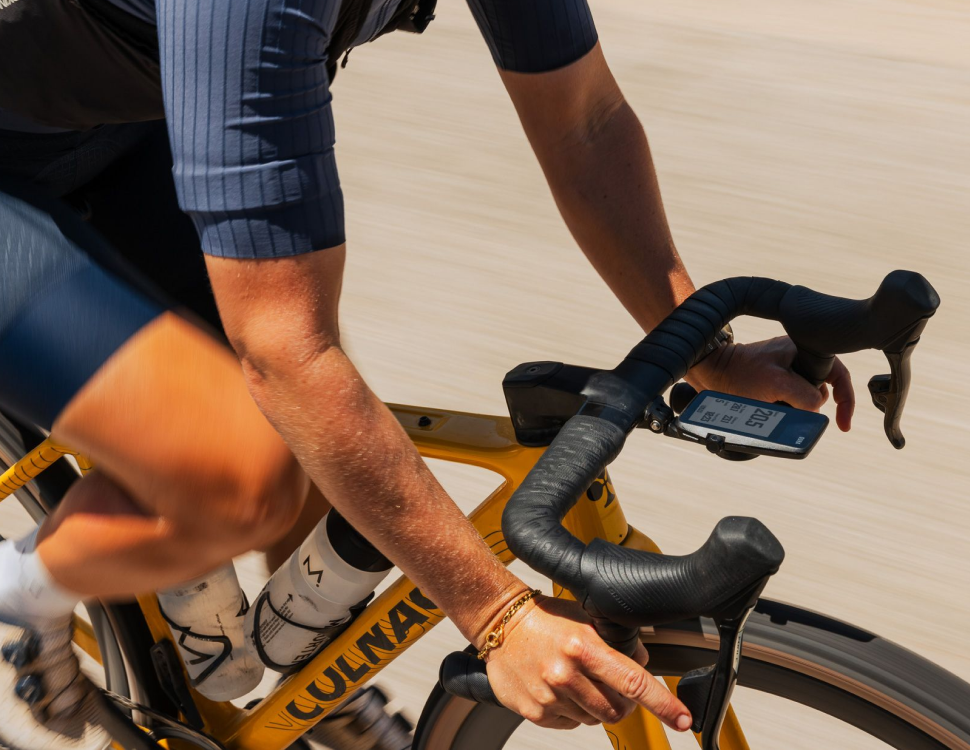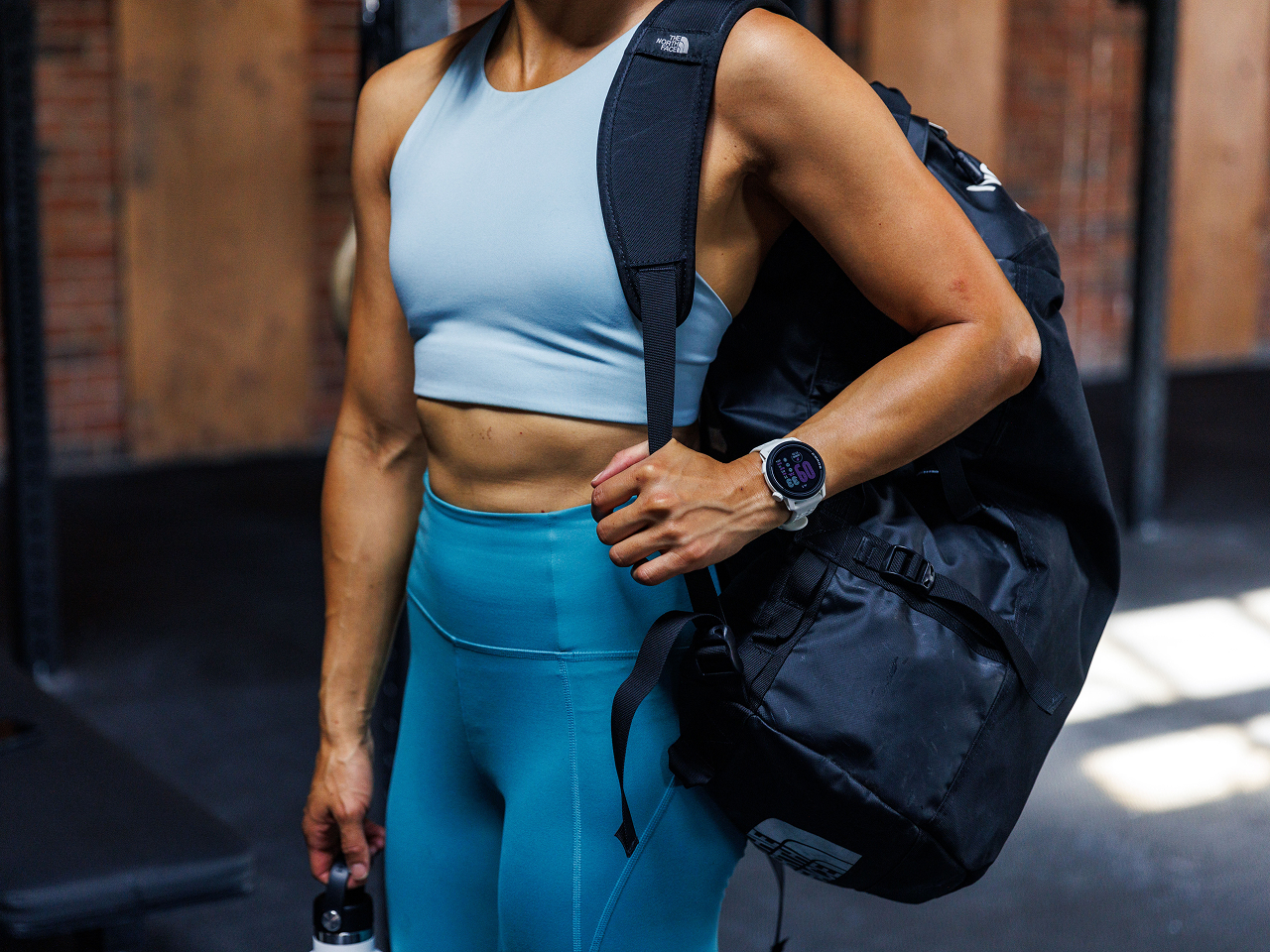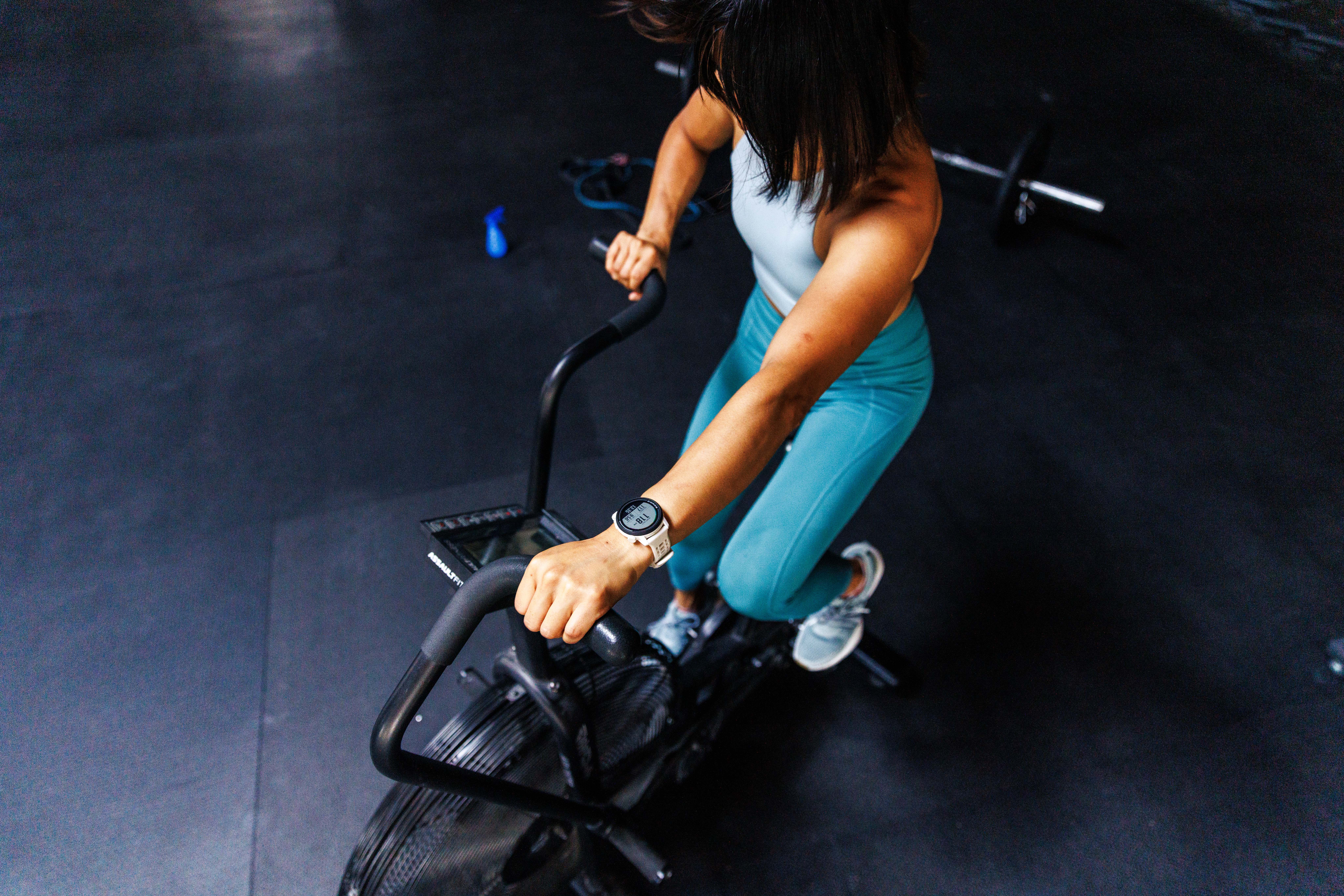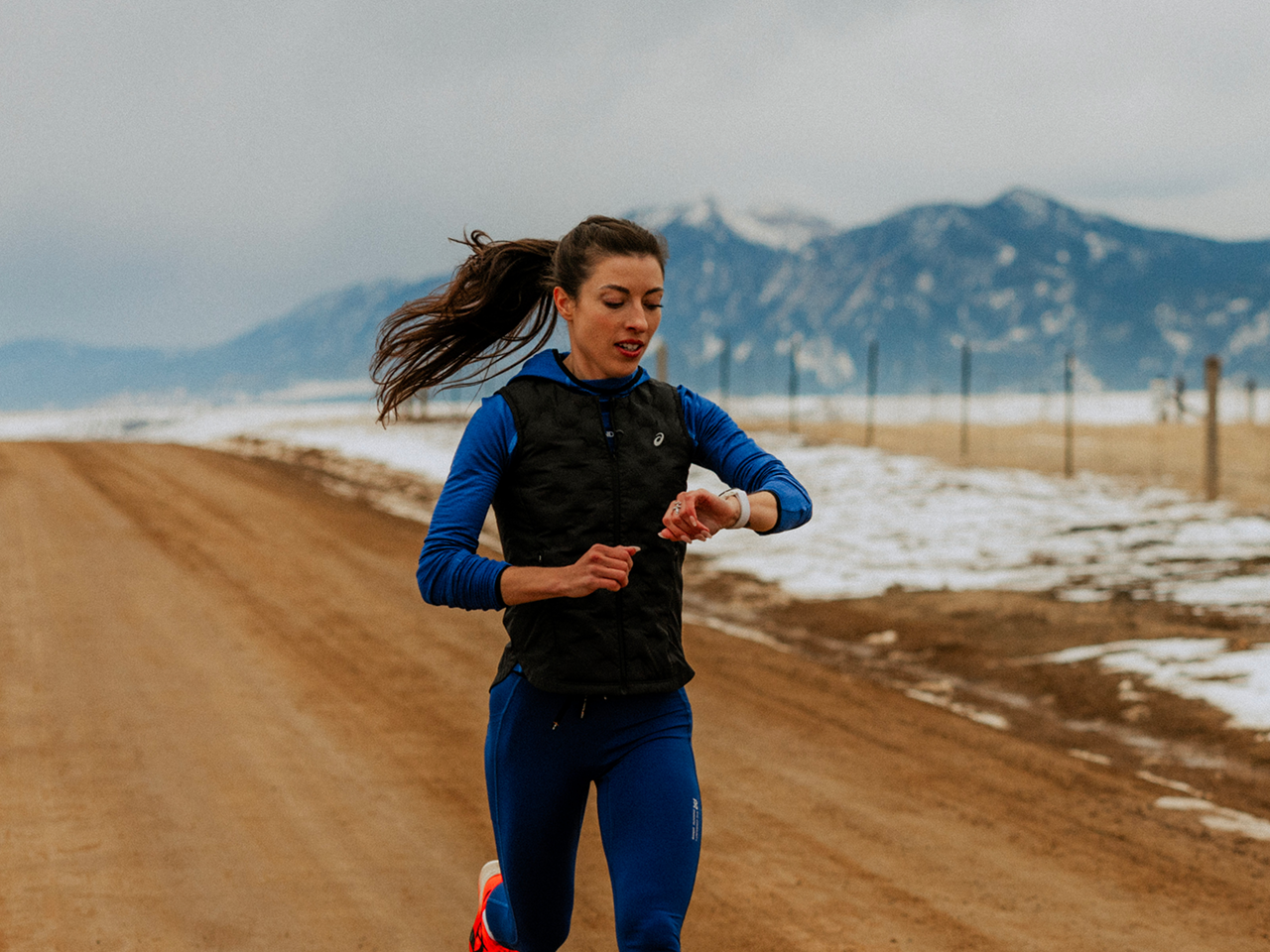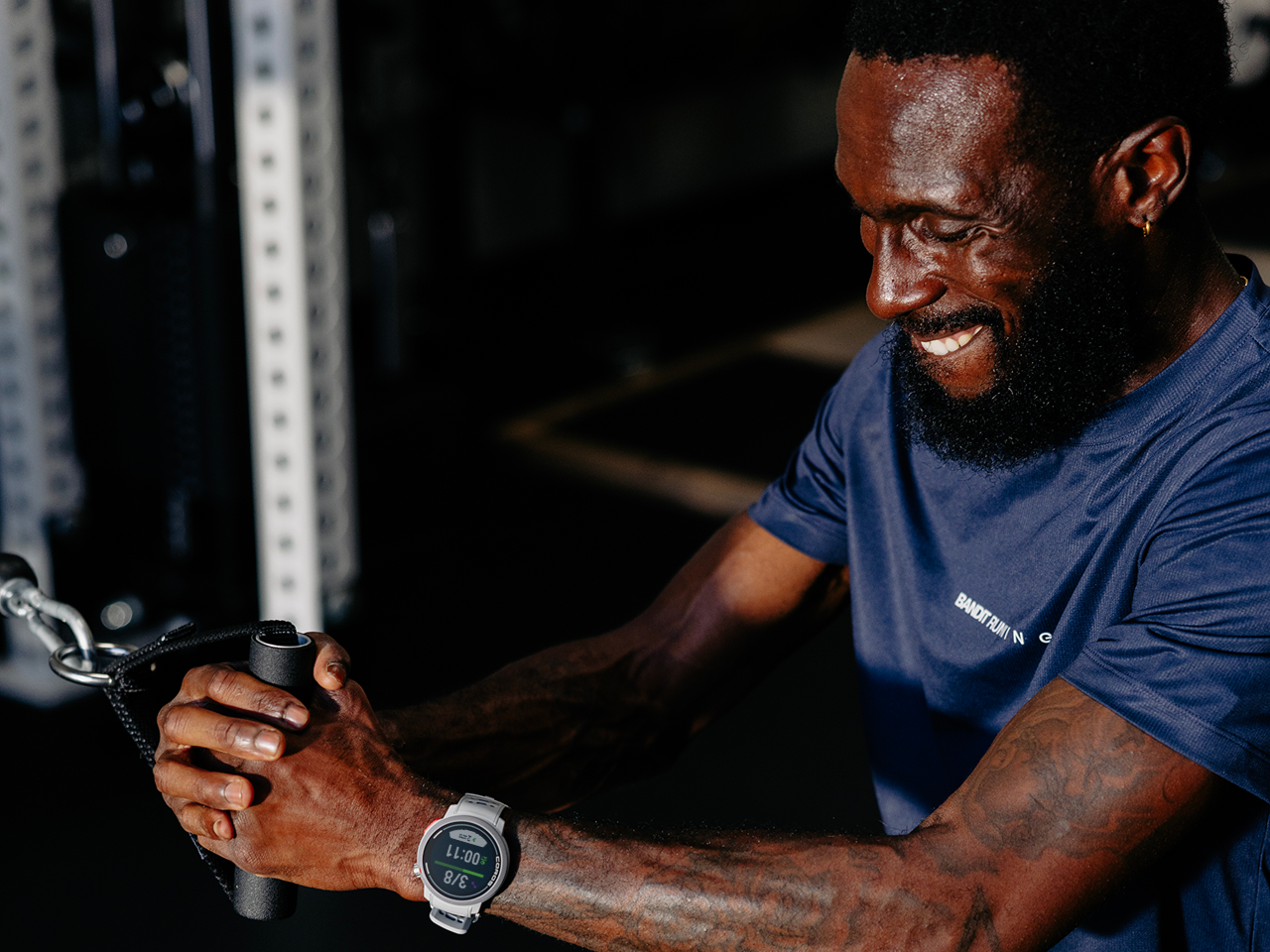The typical endurance athlete dreams about a perfect week of training, with lots of volume, a little bit of intensity and no injuries right? This is what's always on our mind! On the other hand we geek out about all the cool gadgets out there for recovery (compression boots, massage guns, epsom salt baths, fancy foam rollers and so much more). These things are all great for athletes but if you're missing the sleep aspect all of this can go down the drain. One of the most effective ways to monitor recovery is by tracking your sleep cycles, including deep, light, and REM sleep. Your COROS is amazing for logging miles; it also helps you optimize rest and, ultimately, performance.
Here’s why tracking your sleep metrics is a game-changer for endurance runners:
1. Deep Sleep Repairs Your Engine - Deep sleep is where the magic happens for runners. This stage is crucial for muscle recovery, tissue repair, and overall physical restoration. After a tough tempo run or a long-distance grind, deep sleep is when your body rebuilds and strengthens to handle the next challenge. Wearing your COROS to track your sleep can show whether you’re spending enough time in this vital phase.
2. REM Sleep Boosts Mental Endurance - Endurance running is as much a mental battle as a physical one. REM sleep is essential for cognitive functions like memory, focus, and mental resilience—all of which are crucial for pacing strategies in races and powering through high mileage weeks. Tracking REM sleep helps you gauge how well your mind is recharging for the demands of the “Trials of Miles.”
3. Spot Patterns That Could Impact Performance - As runners, we analyze workout splits, heart rate, and VO2 max—but how often do we analyze our sleep? COROS sleep quality reveals trends like insufficient deep sleep or disruptions that may stem from stress, overtraining, or poor recovery habits. Spotting these patterns early can prevent burnout and improve your training effectiveness.
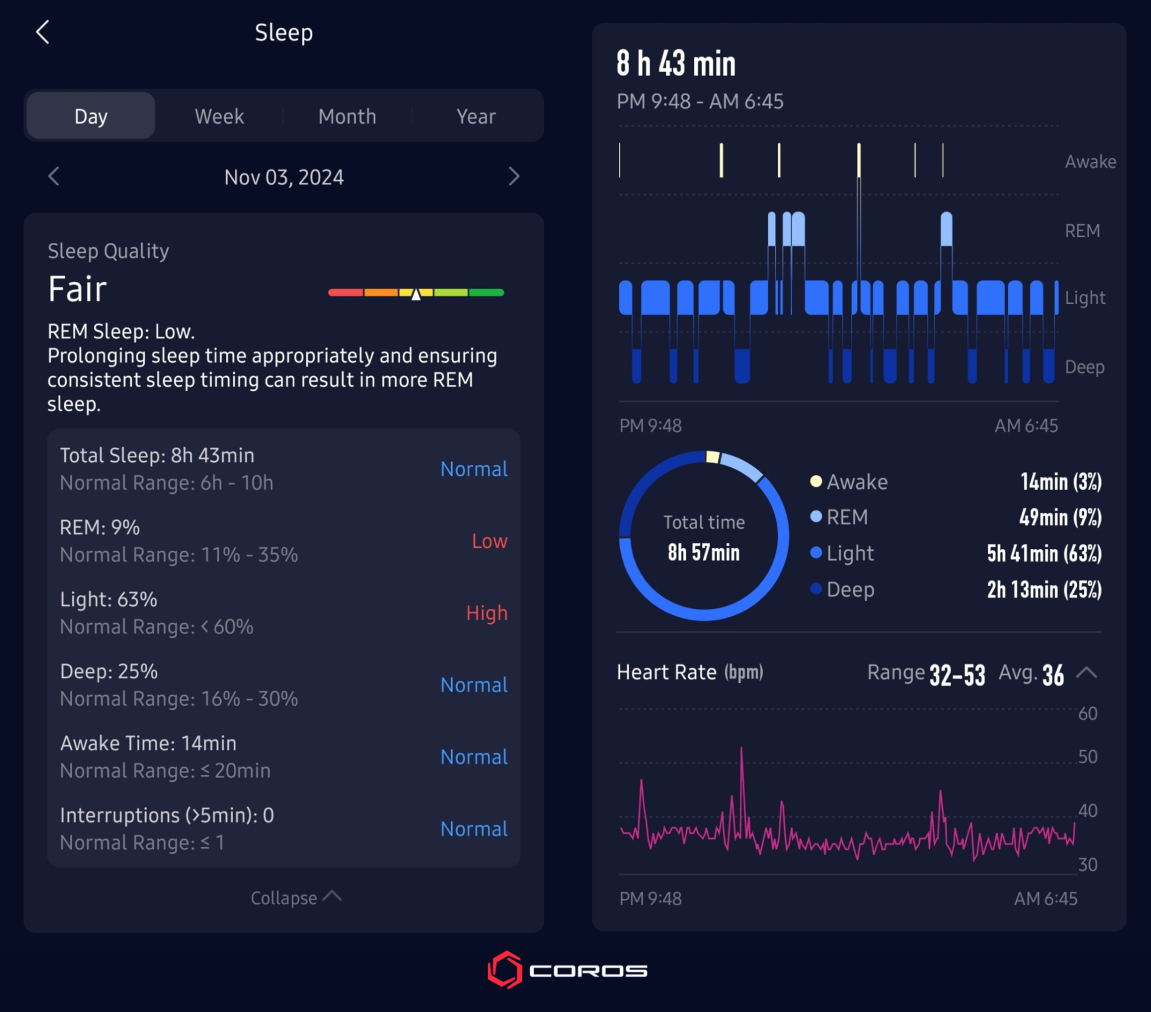
In the mobile app, sleep quality is available alongside your raw sleep stats. This allows athletes to interpret the data and see if there are any deficiencies in these critical recovery hours
4. Better Recovery Means Better Consistency - Consistency is key in endurance running, and proper recovery is what keeps you logging miles day after day. Tracking your sleep with COROS gives you a clear view of how well your body is recovering, helping you make smarter decisions about training intensity, when to take a rest day, or how to taper before a race. Personally, COROS sleep tracking has shown me that while my overall sleep is consistent, I often lack deep sleep.
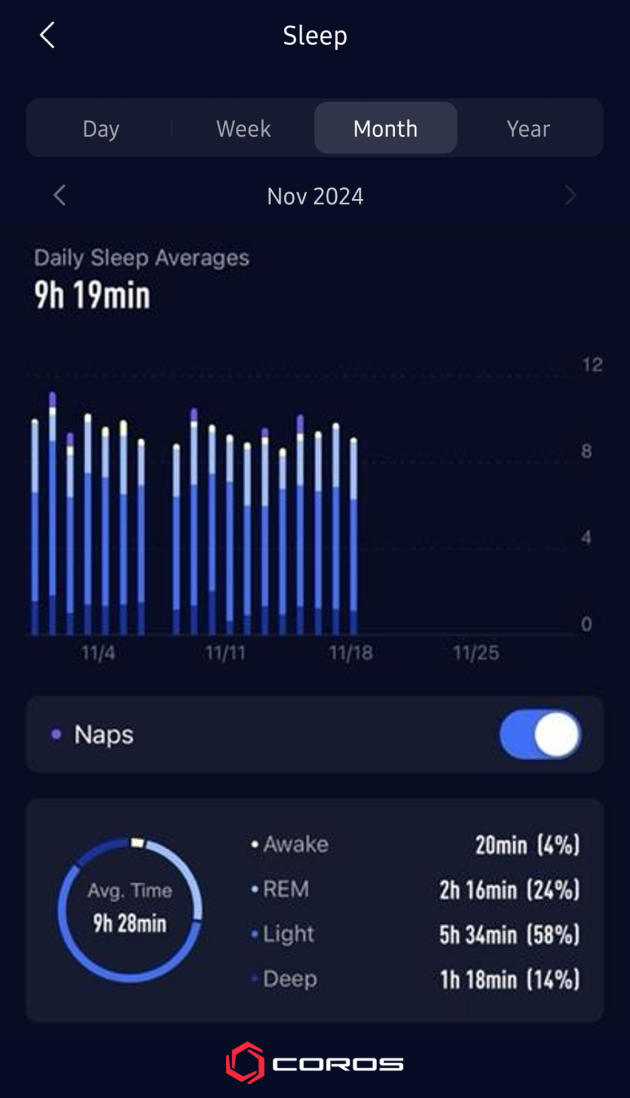
COROS makes tracking your sleep consistency is easy with weekly, monthly, and yearly overviews
The ability to see sleep cycle percentages has been a game-changer for me. If my deep sleep or REM sleep dips below 20% of my nightly total, I know it's time to adjust my workouts or shift a harder session to another day. Having this insight lets me stay proactive about recovery, avoid overtraining, and maintain consistency in my training over the long haul.
The Importance of Overnight HRV Tracking with Your COROS Watch
Heart Rate Variability (HRV) is a critical metric for endurance athletes, providing insights into how well your body is recovering from training stress and adapting to workouts. Overnight HRV tracking, available on your COROS watch, allows runners to monitor recovery while the body is at complete rest. By capturing HRV data during sleep, COROS delivers an accurate reflection of your autonomic nervous system, offering valuable insights into your readiness for the next training session. A higher HRV typically indicates good recovery, while a lower HRV may signal that your body is under stress, whether from hard training, lack of sleep, or other external factors.
For runners looking to maximize their performance, overnight HRV tracking is an essential tool. By checking your HRV trends each morning, you can make informed decisions about your training—whether to tackle a tough workout, go for a recovery run, or take an extra rest day. After wearing your watch to sleep for 5 days, COROS provides a personalized range to help you identify what’s normal for you and when your HRV is low.
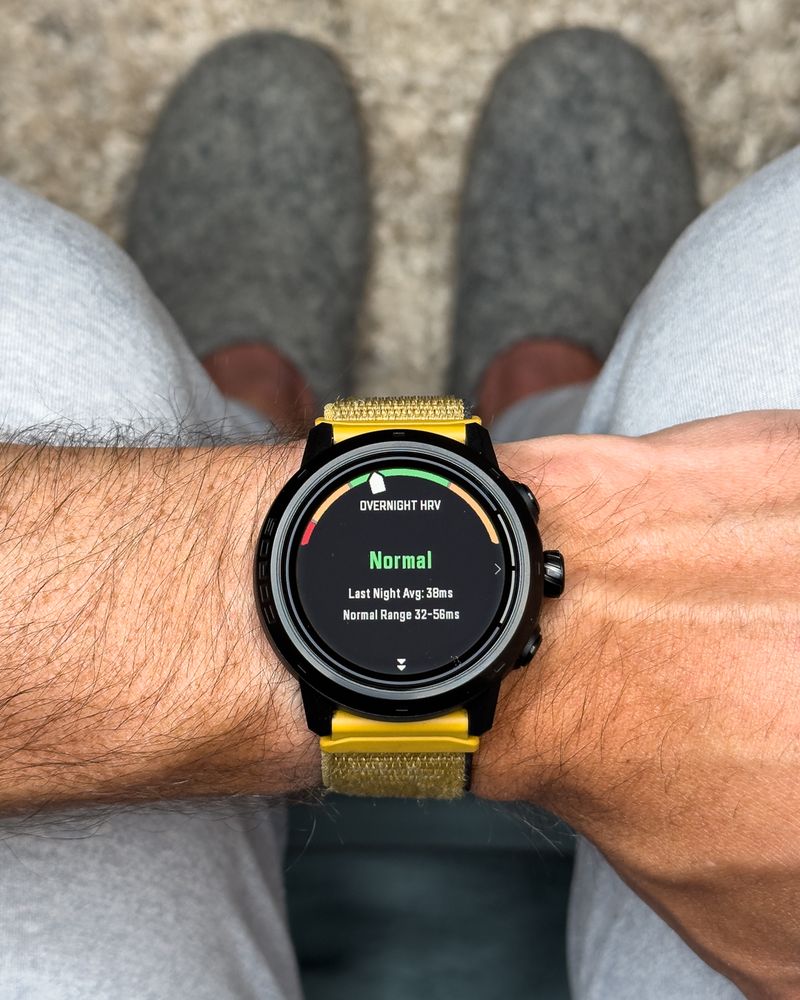
When my HRV is significantly lower than usual, it’s a sign that my body is under stress and needs more recovery. On those days, I often try to fit in a quick nap, which also gets tracked by the watch. A short nap can work wonders for recovery and help get your HRV back on track. So go ahead, nap guilt-free!
COROS watches also integrate HRV data with other metrics, such as sleep quality and training load, giving a comprehensive picture of your overall recovery. Leveraging HRV insights helps endurance athletes balance the fine line between peak performance and overtraining, making it an essential tool for those who want to train smarter and race stronger.
Coaches Tip: Aside from all the data benefits, COROS also has an amazing alarm that buzzes your wrist. It's enough to wake you up without disturbing everyone else! (Perfect for those early-morning runs)
Tips for Endurance Runners to Maximize Sleep Tracking:
• Set a Routine: Create a consistent sleep schedule to optimize your body’s natural recovery cycles.
• Look for Long-Term Trends: Sleep tracking is most effective when you use the data over weeks or months to adjust your routine and training.
• Focus on Quality Over Quantity: It’s not just about how long you sleep but also how much time you spend in deep and REM cycles.
• You might be wondering, “When will I charge my watch? I usually do that at night.” No worries—thanks to COROS’ amazing battery life, you can go 25+ hours of GPS (14+ days of daily use) on a single charge. Personally, I’ve found the best time to charge is in the morning. I check how my sleep went, plug in my watch, and grab my coffee. By the time I’m ready to head out the door for my training session, my watch is fully charged and ready to go for another 25 hours of training!
For endurance runners chasing PRs and pushing their limits, understanding and improving sleep is as important as nailing your long run. Your watch tracks your effort on the run—let it track your recovery too. Rest well, recover smart, and get those miles in!

/filters:quality(90)/fit-in/970x750/coros-web-faq/upload/images/9ed956c135db7666b4bea1702ffdcc60.png)
